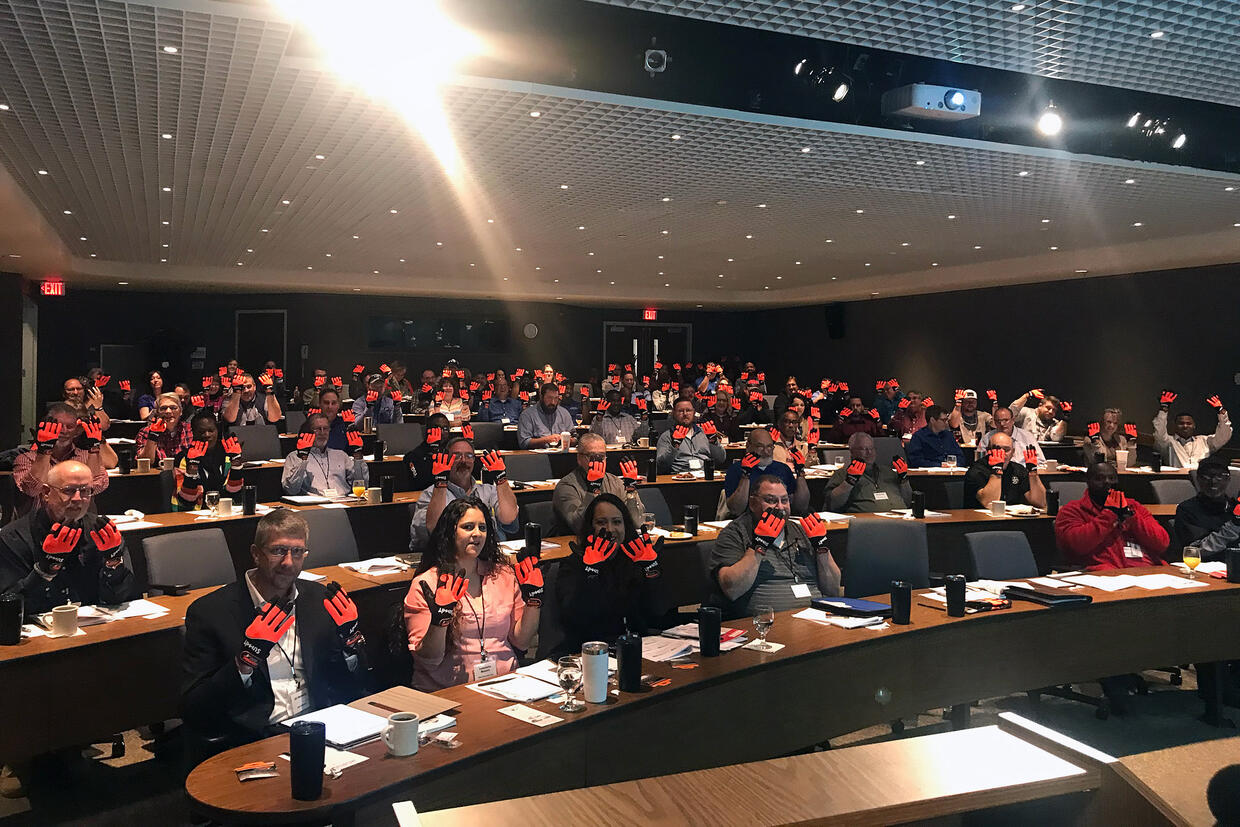Get Ready for Winter Driving Conditions
Winter is right around the corner get your drivers ready for the winter driving conditions. Read the full safety bulletin here and subscribe to receive future safety bulletins straight to your mailbox.
Winter Driving Tips for the Driver and the Vehicle
Proper Steps to Take in Preparing for Winter Driving Conditions:
Step 1: Get your truck ready for winter driving. Tires are crucial for control in snow and ice conditions. Traction tires on the drive axle(s) with ample tread depth are essential, and the state of steer axle tires matters for steering control. Check the condition of chains operating in chain law areas and keep mirrors and glass clean for visibility. For state-specific chain laws, visit this link.
Step 2: Turn on your lights to enhance visibility.
Step 3: Avoid using cruise control on snowy or icy roads.
Step 4: Exercise caution on bridges, overpasses, and less-traveled roads as they freeze first, even in temperatures above freezing.
Step 5: If your truck has ABS brakes, avoid pumping them.
Step 6: Drive slowly and carefully, as excessive speed is a leading cause of winter accidents.
Step 7: Pay attention and anticipate maneuvers, giving yourself extra room for turns and stops.
Step 8: Don't tailgate; maintain a safe distance from the vehicle in front of you.
Step 9: Brake before making turns, reducing speed before entering them.
Step 10: Drive smoothly without abrupt turns or stops to avoid losing control.
Step 11: Familiarize yourself with your vehicle's handling in winter conditions, considering changes in handling as load and weight change.
Step 12: Learn how to control skids, practicing in controlled environments if possible. When skidding, turn into the skid and gently accelerate.
Winter Vehicle Tips:
- Use blended fuel or a diesel supplement as temperatures drop below 32°F.
- Plug in block heaters when not in use during winter.
- Follow the startup sequence: unplug the block heater, switch the ignition to "on," wait for glow plugs to warm up, start the unit, and let it reach operating temperature before driving.
- If equipped with air brakes, purge air tanks daily, ensure the system airs to 120 psi, and listen for the air drier to remove moisture.
- Check all fluids, including DEF and "Wet Kits."
- Ensure wiper blades, mirrors, and lights are functional and free of snow, ice, and salt.
- Before parking, lightly apply brakes to prevent brake pads from freezing.
- Keep steps and grab handles clean and secure.
- If required to carry chains, ensure they are the correct size, clean, and in good condition.
- Dress warmly with self-wicking clothing and have extra clothing on hand.
Got Chains?
If you are operating in a state that requires chains to be on board, ensure the chains are the correct size, adequately secured, clean, and not broken to be easily applied when necessary.
If you are not sure what your state chain laws are, visit:
http://www.tirechainsrequired.com/laws.html
Preventing Driver Injuries in Fall and Winter:
Slip, trip, and fall injuries rank as the leading cause of harm to drivers, with a significant portion of these incidents happening in winter. Thousands of professional drivers suffer severe injuries yearly because of inattentiveness during winter conditions. Operating in icy and snowy environments demands complete attention and heightened awareness. Please remember that our foremost objective is to ensure you return to your loved ones as healthy and safe as you arrived for work today.
- Wear proper footwear with non-slip soles.
- Slow down and be cautious in winter conditions.
- Watch your footing, as snow can hide ice.
- Check handrails and hand grabs for ice before use.
- Always use gloves for better grip.
- Use three points of contact when entering/exiting your vehicle.
- Always wear your seat belt.
- Slow down!
Using the FMCSA Pre-Employment Screening Program (PSP):
- Companies using PSP for screening reduce crash rates by 8% and driver out-of-service rates by 17% on average.
- PSP helps assess individual operators' safety history.
- Carriers pay $10 for each driver history request and a $100 annual subscription fee.
- Individual drivers can request their history for $10 without a subscription.
- PSP is voluntary, not part of CSA, and requires driver consent.
- Enroll in PSP at www.psp.fmcsa.dot.gov.

Fire Prevention Week - October 8–14:
- Review fire prevention and reaction with drivers.
- Inspect fire extinguishers during daily vehicle checks.
- Ensure fire extinguishers are properly charged and not leaking.
- Driver actions during a fire are crucial for safety.

2023 Idealease/NPTC Safety Seminars:
Idealease, in partnership with the National Private Truck Council (NPTC), is pleased to announce the continuation of safety seminars in 2023. These one-day seminars will specifically concentrate on the wealth of data accessible from contemporary trucks, encompassing safety, fundamental safety measures, compliance, regulatory shifts, and CSA (Compliance, Safety, and Accountability). These invaluable seminars are open to all Idealease clients, potential customers, and NPTC members, and there is no registration fee.
Our seminars cater to both novice and seasoned transportation professionals, providing essential insights. While registration is currently available for seminars with confirmed venues, if registration for your preferred location is unavailable, please revisit the link periodically, as additional registration opportunities will be added as venues are secured. This bulletin will be routinely updated with the latest information. To secure your spot for an upcoming 2023 seminar, please visit the following link: Safety Seminar Registration.
Fall Seminars (Sept-Oct):
- 10/19/23 - Green Bay, WI
- 10/11/23 - Birmingham, AL
- 10/12/23 - Atlanta, GA
- 10/17/23 - Columbia, SC
- 10/17/23 - Batesville, IN
- 10/26/23 - Nashville, TN
*The Idealease Safety Bulletin is provided for Idealease locations and their customers and is not to be construed as a complete or exhaustive source of compliance or safety information. The Idealease Safety Bulletin is advisory in nature and does not warrant, guarantee, or otherwise certify compliance with laws, regulations, requirements, or guidelines of any local, state, or Federal agency and/or governing body, or industry standard.
